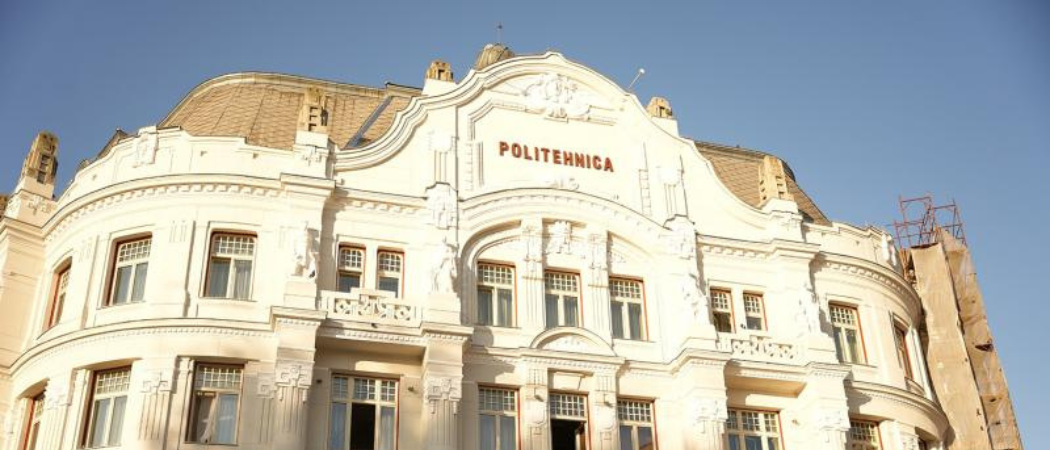The university has reviewed accounting procedures in the wake of a scandal that saw €2.5 million embezzled by four staff

Photo credits: Polytechnic Institute in Timisoara
Romania’s national anticorruption agency has sent to trial four staff at the Polytechnic University of Timișoara after an internal review found money was missing from budgets allocated through Erasmus and Erasmus+ mobility projects, and also from the university budget.
The case dates back to 2020, when an internal review found irregularities in the university’s finances. Florin Drăgan, rector of the Polytechnic University of Timișoara, told Science|Business the university alerted the authorities who then started a criminal investigation.
After five years, four university staff are now facing trial for embezzlement and fraud. Two staff were working in the university’s international relations department, while the other two were working in the accounting office.
One of the staff members, who was directly involved in managing Erasmus projects at the university, has agreed to cooperate with the investigation and admitted to using fake or incomplete documents to illegally secure funds from the EU budget or from budgets administered on behalf of the EU.
During multiple projects funded by Erasmus and Erasmus+ mobility programmes, university staff conspired to send fake documents to the National Agency for EU Projects in the Domain of Education and Professional Training, which is in charge of payments for EU-funded education programmes. They managed to embezzle €659.337 from Erasmus and Erasmus+ projects, according to estimates by the prosecutor’s office.
The university staff declared fictitious travel expenses for Erasmus mobility projects, and they even asked students to agree to fictitious travel plans in exchange for cash.
The rest of the money, up to €2.5 million, was illegally transferred to personal accounts directly from the university’s budget. The anticorruption agency hopes to recover the money, but Drăgan said “the amounts need to be clarified” as the university is also seeking to recover some of the lost money.
Drăgan said the university has fully cooperated with the investigation and has offered its full support to the anticorruption agency.
According to a spokesperson for the National Agency, the European Commission has been informed about the fraud case. “At the end of legal proceedings, the entire recouped amount will be returned to the [Commission],” the spokesman said.
Related articles:
- University of Zagreb faculty dean arrested in €1.7M fraud case involving EU cohesion funds
- New minister aims to find ‘black holes’ in Romania’s research system
Tenured professor
The university staff involved in the case are no longer working at the university, except for the individual cooperating with the investigation, who still working as a tenured professor.
However, Drăgan is now looking for ways to fire her and will bring up the issue in the next university senate meeting in September. “I do not think I have a legal basis, but it’s a question of morality and I will put this on the agenda of the senate,” he said.
In the meantime, the university has updated its accounting rules and has implemented additional safeguards against future fraud. Drăgan said the 2020 internal investigation that helped the university uncover the scandal is part of a broader attempt to reorganise the university and make it more competitive internationally.
Drăgan hopes the scandal will not affect the university’s progress in terms of establishing international partnerships through the European Universities alliances, but also through Horizon Europe projects. “We appointed new people, we changed procedures, we are safe,” he said.
In a statement released to the press on Monday, the university said it has been “correcting mistakes from the past” and is looking to continue its “dynamic presence” in international research and innovation projects.
Science|Business has reached out to the European Commission to find out whether EU antifraud institutions were involved in the case.
It’s unclear whether corruption in EU funding for academic exchanges and research is widespread, but in 2023 a similar case was uncovered in Croatia. At the time, a dean of faculty at the University of Zagreb, alongside a fellow professor and 27 other people, were arrested on suspicion of subsidy and procurement fraud worth over €2 million, including €1.7 million in EU funds.
The European Prosecutors Office said the university staff were manipulating procurement procedures to benefit specifically chosen companies, which would then pay the dean and professor back for the favour.





 A unique international forum for public research organisations and companies to connect their external engagement with strategic interests around their R&D system.
A unique international forum for public research organisations and companies to connect their external engagement with strategic interests around their R&D system.